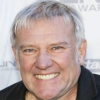Alex Lifeson

Alex Lifeson
Alexandar Zivojinovich, OC, better known by his stage name Alex Lifeson, is a Canadian musician, best known as the guitarist of the Canadian rock band Rush. In 1968, Lifeson co-founded the band that would become Rush, with drummer John Rutsey and bassist and singer Jeff Jones. Jones was replaced by Geddy Lee a month later, and Rutsey was replaced by Neil Peart in 1974; the band's line-up has remained the same ever since...
NationalityCanadian
ProfessionGuitarist
Date of Birth27 August 1953
CityFernie, Canada
CountryCanada
With 'One Little Victory,' I love the idea that Neil is the one who starts the record and he starts it with such a fury and it just says, 'We're back.' And the whole sentiment of that song about being aware of those little successes -- the daily little things that really count -- that we so often take for granted.
When Neil called, I have to say that my heart soared. And the reason really was because it said so much about his recovery -- that he was coming back to the world of the living. I mean, even if he wasn't really ready for it, he was making an attempt, and there was that little faint light in him that was glowing again.
You know, we have a long history of covering different periods of this band's development with a live record... a sort of live thing that would be done for three or four records, and that was the intention with this particular package.
The more I got into playing guitar, the more I enjoyed music, and the broader my listening became. The instrument itself became important to me, and I started messing around with classical guitar and took classical lessons.
Pete Townshend is one of my greatest influences. More than any other guitarist, he taught me how to play rhythm guitar and demonstrated its importance, particularly in a three-piece band.
'Moving Pictures' still makes me get into a groove; I love the way it feels. But I'm not nostalgic for old times. I'd love to have that hair again and be 40 pounds lighter, but it's a tradeoff.
It's hard to stop wars, and it's hard to stop the abuse of the planet and all of those things. I guess you just do what you can do and voice your concern.
It used to be that you made an album and then you went on the road to promote that album, hoping for good record sales. Well, good record sales basically don't exist any more, and the emphasis has been more on the live show.
In September 1968, Rush played for around 20 people at a small hall in a church basement. We played songs like 'Spoonful,' 'Fire' and 'Born Under a Bad Sign,' and got paid $10. Then we went to a nearby deli and ordered Cokes and French fries and started planning our future.
I don't know how many times I heard older people, and not just parents but just older people, say, 'Oh, my God. Your generation is just totally nuts. You have no sense of what it was really like, when it was great.' And every generation has that same feeling, you know?
Hendrix was a natural genius who played many beautiful styles. Talent as great as his doesn't come through life very frequently. Hendrix was one in a billion.
Bryan Adams might not be what I want to put on, but he's a pop singer with a great voice and great guitar tone. Plus, he's done more for Canada than Rush have, because he works all the time. I envy him for that.
I think Rush have always had this reputation, particularly to non-fans, of being an ultra-serious and cerebral group when, in fact, the reverse is true. We don't take ourselves seriously at all. Sure, we take our music seriously, but that's altogether different.
The thing is, I don't take anything for granted anymore - my family, my music, you name it.